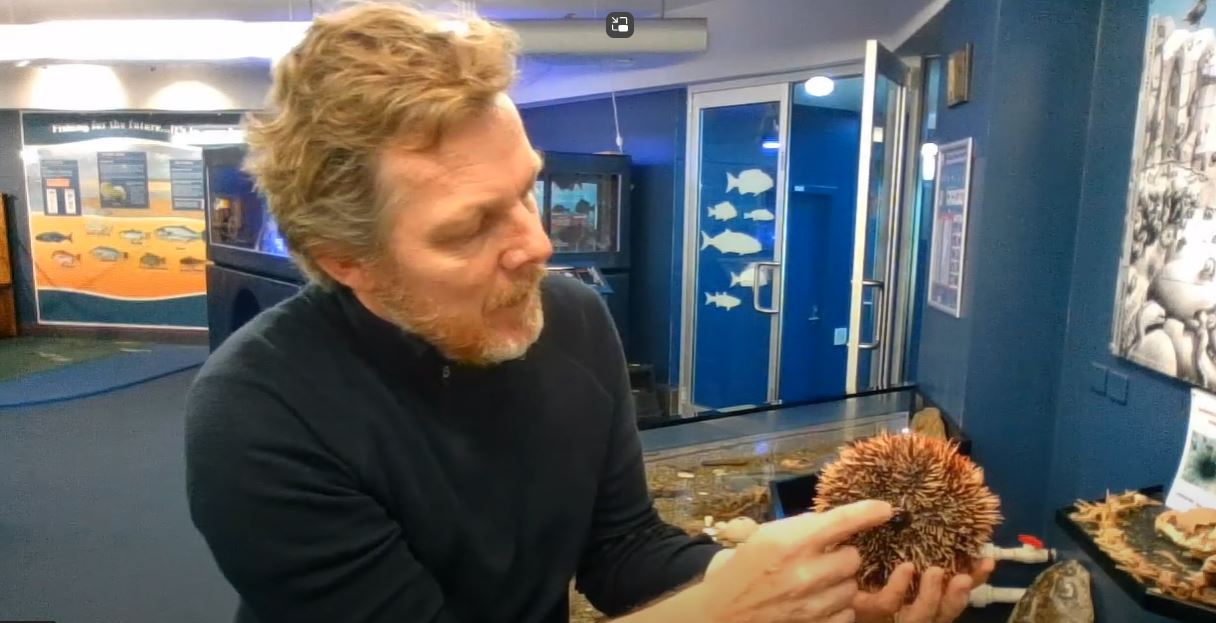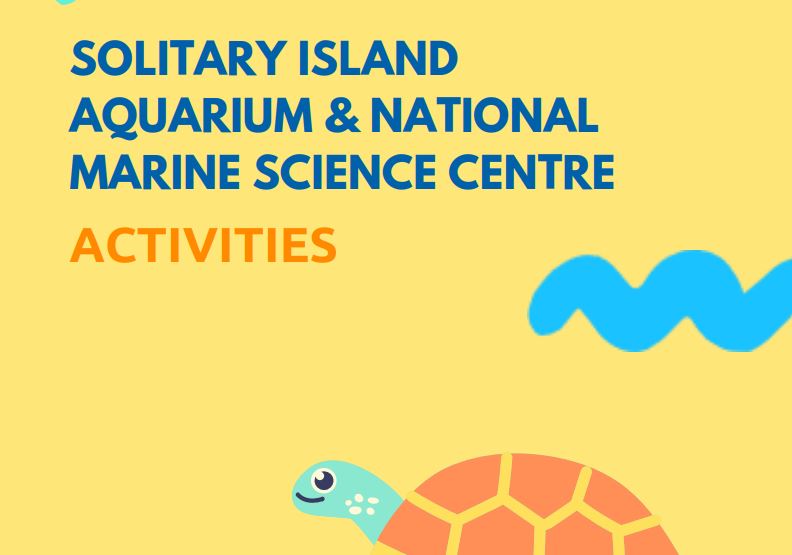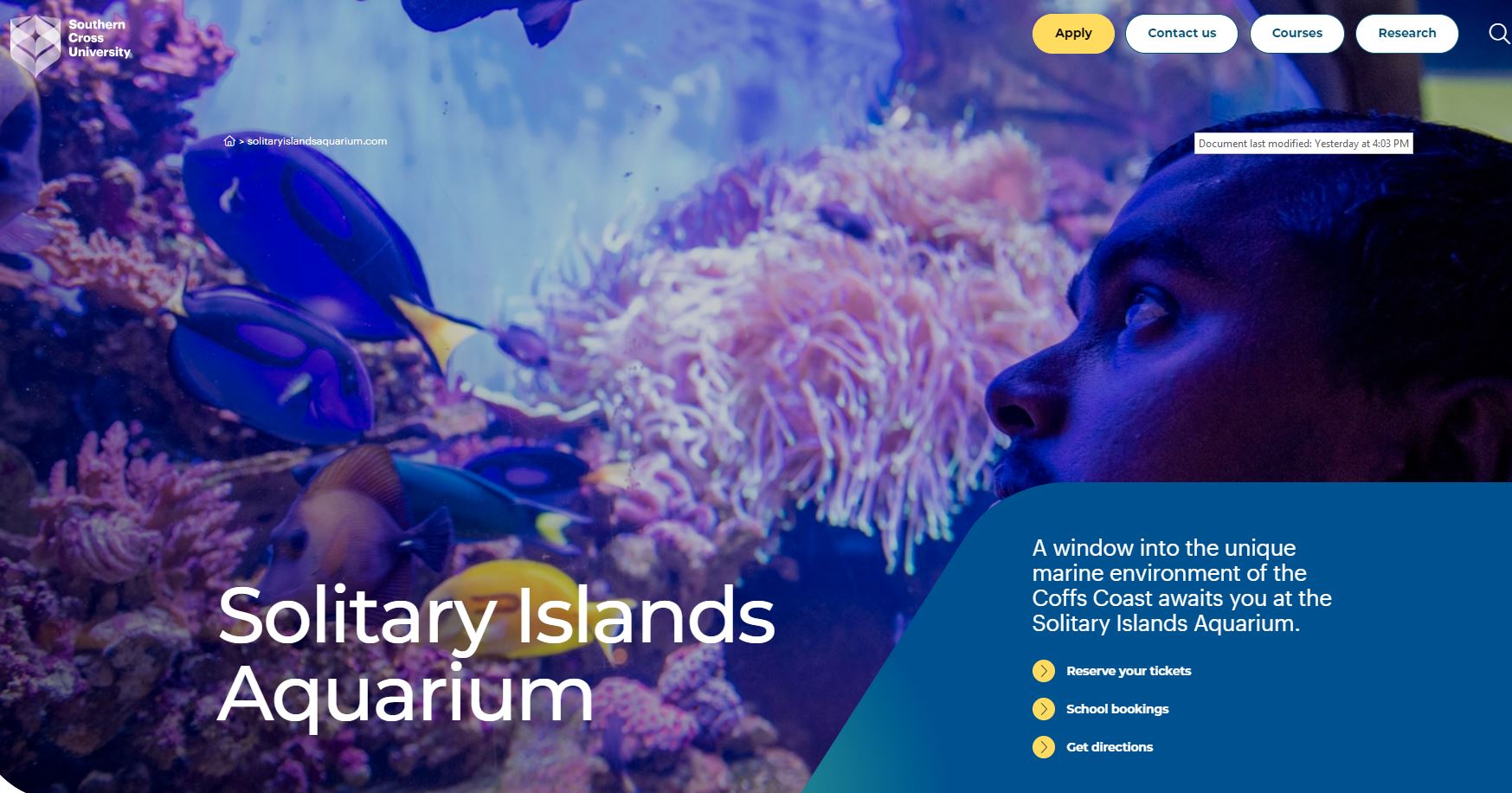Solitary Island Aquarium Virtual Tour
Discover and learn about the characteristics and structural/behavioral adaptations of the marine life that live on the Solitary Island Reef.
What will students learn? - Stage 3

Solitary Island Reef: Australia’s first marine park.

The history and geography of the Island and the East Coast of Australia.

Aquatic plant growth and ecosystems.

Why the Coffs Coast and Shark Bay in Australia are so unique.

Coral bleaching and ocean health.

Fish genetic change and symbolic relationships.

Structural, behavioral and colourful adaptations.

Different tank systems that model the Solitary Island Marine Park such as reefs and caves.

Rock pools and animals to keep an eye out for.

Why shark populations are slow to replenish.

Aquatic plant growth and ecosystems.

70 species of sharks
Stephan Soule is the Manager, Outreach and Education National Marine Science Centre

Stage 3 Lesson: How do marine animals adapt to their environment?
- Syllabus Reference
- Resources
- Inquiry questions
- Student worksheets
- Activites
- Discussion questions
Resources to download
Students will be taken on a journey through the marine life at the aquarium as they complete these activities.

The Solitary Islands Aquarium and Marine Centre lets you dive in and explore the unique marine environment of the Coffs Coast through its aquariums, guided tours and interactive displays.

